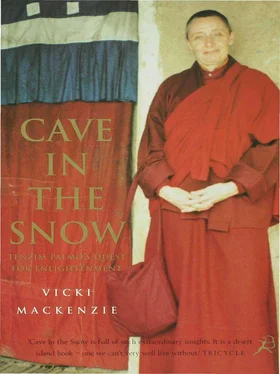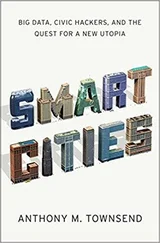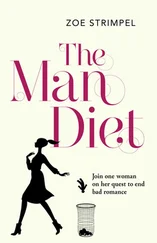’The amazing thing was I had no pain, even though my back was one big red, raw mess. I remember being wheeled down the hospital corridor with the doctor holding my hand and telling me what a brave girl I was for not crying. But it wasn’t hurting at all. I stayed in hospital for ages with this frame holding the sheets off my body but I was left with no scars. Later, when I was older, my mother told me that when she had seen me engulfed in flames she had prayed fervently that my pain be taken from me and given to her instead. I was interested because by then I had heard about the Buddhist practice called Tong Lin where you breathe in the suffering of others to relieve them of their misery, and give out in its place all your health and well-being in the form of white light. My mother had done this profound practice absolutely spontaneously! Furthermore, it worked. She said that although her prayer was absolutely sincere she never received the extra pain of my burns. She was amazing. She did that, even though she was in agony herself,’ she said. ‘Actually I think I came into this family because of her,’ she added quietly, referring to her inherent belief in reincarnation, and by implication that she had chosen this Western life in a female body for some specific purpose.
When she was not ill, life in the East End went on as normal. It was a decidedly no-frills existence. Tenzin Palmo shared a bedroom with her brother Mervyn, the bath was brought out once a week, and money was in desperately short supply. She explained: ’After my father died my mother took over the fish shop, only unbeknown to her an uncle who was managing the shop was gambling on the horses. The family ended up being enormously in debt and my mother had to work doubly hard to make ends meet.’
Financially strained and fatherless they might have been, but it was, nevertheless, a happy, normal childhood, something that would hold her in good stead later when she faced her years of solitude. There were penny bus rides to the parks and museum, and the occasional treat of a Walt Disney film. Added to this was the forbidden delight of the fish shop’s smoke holes (the last remaining ones in London), two large brick chimneys in the back yard blackened with tar, and lined with shelves for smoking the haddocks and bloaters. They were dangerous but fun. ’To be honest we never thought much about being poor, it was simply how we lived. We always had enough to eat and one’s goals in those times were so much more modest,’ she remarked. ‘We didn’t miss having a father at all! In fact, we got on very well without one. I noticed that we didn’t have any conflict or tension in our house, whereas there often was in my friends’ houses.’
Tenzin Palmo grew up to be a pretty child, still thin, but with those same huge blue eyes. Her bald head had given way to a mop of light brown curls. She was so engaging to look at, in fact, that later her monastery in India insisted on pinning up a picture of her at this age. ‘I reached my peak at three – after that it was downhill,’ she laughs. She fought with her brother, whom she idolized, following him in umpteen pranks which he thought up. ‘I used to be dressed up as the guy for Guy Fawkes night, sitting motionless on the pavement for hours! And once he got me to approach strangers on Hampstead Heath asking them for money for the bus ride home, telling them our mother had abandoned us. He’s always said ever since that it was him who put me on the path of the begging bowl!’
She liked her two schools, Teesdale Street Primary School and the John Howard Grammar School, whose motto from Virgil was singularly apt: ’They Can Because They Think They Can’. She was a good pupil, though not outstanding, doing well in English, history and IQ tests, which she always topped. ’This doesn’t mean I was necessarily intelligent, merely that I have the sort of mind that can do intelligence tests,’ she said modestly. She also invariably took the annual progress prize, an accolade which she also dismisses. ‘Basically it meant you had done your best, which in my case wasn’t true. I didn’t try hard at school at all because fundamentally I didn’t find the subjects very interesting.’
As might be expected in this tale, however, it was in the spiritual arena where the most interesting developments were taking place. Lee was a spiritualist and every Wednesday at 8 p.m. the neighbours would arrive at 72 Old Bethnal Green Road for their weekly seance.
‘We used to sit round this huge mahogany table with legs the size of tree trunks which had come from some grand house and one of the neighbours who was a medium would go into trance and get messages from the spirit guides. I remember one night my mother made some joke about the spirits not being very strong and they took up the challenge. They asked the greengrocer, a woman of about 18 stone, to sit on top of the table then they lifted the whole thing up, this huge heavy piece of furniture, and it sailed around the room with the greengrocer perched on top. We all had to run into the corners to get out of the way,’ Tenzin Palmo recalled.
She never doubted the authenticity of what was going on. It was her house, she knew there were no trapdoors and no one was being paid. ‘I gained a lot from those experiences,’ she continued. ‘There is no way now anyone could tell me that consciousness does not exist after death because I have so much proof again and again that it does. It’s not a belief, it’s a knowledge, a certainty. I also learnt that there are many dimensions of being that are absolutely real, which we are not normally conscious of. And because of the seances we talked about death a lot in our family, in a very positive way. We discussed what it was all about and what happened next. It was one of our major topics of interest. And I’m enormously grateful for that. Many people avoid thinking about death and are mainly afraid of it, and if you’re not it removes an enormously heavy burden from your life.
‘For me, death is the next stage on, another opening up. We’ve done so many things in the past and now we are to go on to an infinite future. This gives much less anxiety about this life because it is seen as a little waterdrop in a big pool. And so for this lifetime you do what you need to do for this lifetime and it doesn’t matter about all the rest because you’ve probably already done it before or else you’ll do it in the future. It gives one a sense of spaciousness, and hope.’
From an early age, however, Tenzin Palmo was showing signs of a penetrating mind and a highly questioning nature qualities that she was to carry with her all her life. She was never going to be an easy believer. ‘I didn’t like the way spiritualism hooked people in so they didn’t let go and get on with their lives. Those seances became the very centre of our neighbours’ existence, increasing their attachment. I also thought that on the whole people asked such stupid questions,’ she said. ‘They didn’t get down to the profound issues that I thought really mattered. They were mostly interested in chit-chat with their dead relatives. Personally I thought it was a waste of the spirit guide’s time and knowledge.’
The ‘issues’ that were preoccupying the young Tenzin Palmo were both precocious and profound. They were also curiously Buddhist: ’I couldn’t have put it in these words but what concerned me was how we get beyond the dilemma of constantly coming back and having to experience again and again the inherent suffering in our existence.’
There was one particular incident from her childhood which illustrated perfectly the way her mind was working: ‘I was about thirteen and was coming home with my mother after visiting an aunt and uncle,’ she recalled. ‘We’d had a very pleasant evening and were waiting for the bus. Sitting at the bus stop I had this sudden flash – that we were all going to die, and before that we were all going to get old and probably sick too. We hadn’t been talking about these things, it just came to me. I remember watching the buses going past all lit up with the people inside laughing and talking and thinking, “Don’t they know, don’t they see what is going to happen?" I said to my mother that life was really very sad because of what we had to go through. And my mother who had had a terrible life really, struggling to bring up two children, with incredibly awful health and so many financial problems replied: “Yes, of course there’s a lot of suffering in life but there are good things too." I thought, she’s missed the point! There are good things BUT underlying it all is the fact of ageing, sickness and death, and that negates all the other things.
Читать дальше












